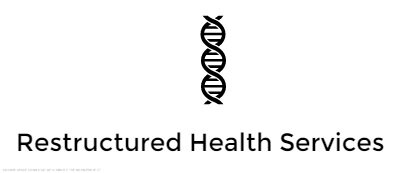The Financial Freedom of Cash-Based Healthcare: Unraveling the Benefits Over Insurance Plans
The Financial Freedom of Cash-Based Healthcare:
Unraveling the Benefits Over Insurance Plans
In the ever-evolving landscape of healthcare, cash-based models are gaining traction as an alternative to traditional insurance plans. This shift towards direct payment for medical services offers a range of benefits that resonate with both healthcare providers and patients. In this article, we'll explore the advantages of cash-based healthcare over insurance plans and how this approach is reshaping the healthcare experience.
Transparent Pricing: One of the primary advantages of cash-based healthcare is the transparency in pricing. Unlike the complex billing structures of insurance plans, cash-based services often come with upfront, clear pricing. Patients can easily understand the costs associated with their healthcare, fostering a sense of financial control and predictability.
Bypassing Insurance Red Tape: Dealing with insurance claims, pre-authorizations, and paperwork can be a time-consuming and frustrating process. Cash-based healthcare simplifies this by bypassing the red tape associated with insurance. Patients and providers can focus on the medical aspect of care rather than navigating the complexities of insurance bureaucracy.
Accessible for the Uninsured: Cash-based healthcare makes medical services more accessible to individuals without insurance coverage. This inclusivity ensures that everyone, regardless of insurance status, can access quality healthcare without the barriers imposed by traditional insurance plans.
Freedom of Choice for Providers: Cash-based models empower healthcare providers by allowing them to set their prices based on the value they provide. This freedom encourages competition, leading to a market where providers are motivated to deliver high-quality, cost-effective services to attract patients.
Streamlined Administrative Costs: Cash-based healthcare minimizes administrative costs for both providers and patients. Without the need for extensive paperwork and claims processing, providers can operate more efficiently, and these savings can be passed on to patients in the form of lower service costs.
Customized and Personalized Care: With the freedom from insurance constraints, providers in cash-based healthcare can focus on delivering personalized and customized care. This approach fosters a stronger doctor-patient relationship, as healthcare decisions are made collaboratively, taking into account individual needs and preferences.
Prompt Access to Services: Insurance plans often involve waiting periods, pre-authorizations, and other delays that can impede timely access to medical services. Cash-based healthcare eliminates these hurdles, allowing patients to receive prompt care without the delays associated with insurance processing.
Reduced Overhead for Providers: Healthcare providers operating on a cash basis experience reduced administrative overhead. This enables them to allocate resources more efficiently, leading to a more sustainable and cost-effective practice.
Conclusion:
The benefits of cash-based healthcare over insurance plans are reshaping the healthcare landscape, offering a streamlined and patient-centric approach. Transparent pricing, accessibility for the uninsured, freedom of choice for providers, and personalized care are just a few of the advantages that make cash-based models increasingly attractive. As individuals seek financial freedom and a more direct, transparent healthcare experience, the shift towards cash-based healthcare is likely to continue gaining momentum, providing a viable alternative to traditional insurance plans. #CashBasedHealthcare #HealthcareSimplified #TransparentMedicalCosts 💵🏥

